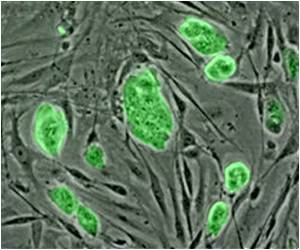Fetal dopamine cells transplanted into the brains of patients with Parkinson's disease were able to stay healthy for upto 14 years, a team of researchers have found

"We have shown in this paper that the transplanted cells connect and live well and do all the required functions of nerve cells for a very long time," said Ole Isacson, MD (DR MED SCI), director of the Neuroregeneration Research Institute at McLean and a professor of neurology and neuroscience at Harvard Medical School.
The researchers looked at the brains of five patients who got fetal cell transplants over a period of 14 years and found that their dopamine transporters (DAT), proteins that pump the neurotransmitter dopamine, and mitochondria, the power plants of cells, were still healthy at the time the patients died, in each case of causes other than Parkinson's.
The fact that these cells had remained healthy indicated that the transplants had been successful and that the transplanted cells had not been corrupted as some researchers had suggested they likely had been in other studies, said Dr. Isacson, lead author of the paper.
"These findings are critically important for the rational development of stem cell-based dopamine neuronal replacement therapies for Parkinson's," the paper concluded.
So far, about 25 patients worldwide have been treated with this particular method of transplanting fetal dopamine cells over a period of two decades and most saw their symptoms improve markedly, he said.
Advertisement
However, Dr. Isacson said proof had been lacking that the transplanted cells were able to remain healthy -- until this study. This is important for research in the transplant field to move ahead, he said.
Advertisement
Dr. Isacson said there was a need to understand how transplanted neurons could survive despite ongoing disease process in the patients' brains. He said there has been controversy among scientists, some of whom believe that the transplanted cells could be corrupted by toxic proteins associated with the disease process, even at the same time patients seemed to be doing better.
"Everything we saw looked very healthy," he said, referring to the dopamine transporters and mitochondria cells.
He said the method used to transplant the cells into these patients' brains was different than another method used on about 60 other patients worldwide. In some of those other trials, scientists said the cells might have been damaged as a result of the disease process.
It may have been that the method used on the patients in this study, which injected tiny bits of liquefied dopamine nerve cells into the brain via a thin needle, was superior to the method used in other studies, which transplanted larger chunks of nerve cells using a larger needle, he said. The transplants on the patients in this study were done in Canada.
In this study, the researchers led by Dr. Isacson compared the patients' own dopamine producing cells with the transplanted ones. "We found very different patterns," he said.
The difference was seen in the DAT and mitochondria, which were unhealthy around the patients' own dopamine neurons and healthy around the transplanted ones. "The transplanted cells don't have the disease," he said.
"This is very important in the quest for new therapies," he added.
It is very difficult to obtain dopamine nerve cells from fetal tissue, he said. It would be far easier to grow the cells in a laboratory from stem cells, he noted. There have been no stem cell transplants as of yet for Parkinson's patients.
Source-Eurekalert







